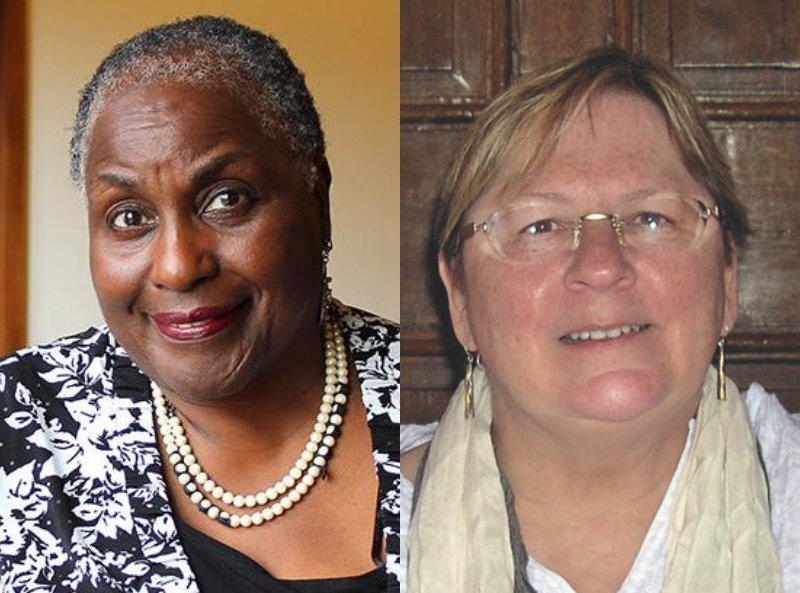You are here
Faculty Engage Pilot Study on Childhood Experiences of Race-based Trauma from Colorism & Hair Type Discrimination

Children have a variety of experiences that impact how they develop into adulthood. Faculty and doctoral students at Tulane University are interested in quantifying how the messages children hear about skin tone and hair type affect their thoughts and behavior as they mature. Through an anonymous online survey, researchers hope to understand how adult memories of childhood experiences of colorism and hair type discrimination produce race-based trauma.
The study’s principal investigator is Tulane University School of Social Work Associate Professor Dr. Marva Lewis who focuses on the development of culturally valid research methods and measures of racism-based stress. Much of her applied research centers on the prevention of child abuse and neglect and strengthening parent-child attachment using the Talk, Touch & Listen While Combing Hair© parent-education curriculum in community-based support groups. Co-Principal investigator is Dr. Bonnie Nastasi, a Professor of Psychology in Tulane’s School of Science and Engineering who focuses on culturally appropriate health promotion and health risk prevention programming for child, adolescent, and adult populations. TSSW Adjunct Instructor, TSSW Doctorate of Social Work alum, and licensed clinical social worker Dr. Larissa Parrott is serving as the Research Coordinator.
The anonymous online survey asks adults to recall their childhood experiences. The questions focus on colorism, racial resentment, childhood hair type, tender headedness, adverse childhood experiences, and parent acceptance. This data will address the research question of how early experiences of acceptance or rejection based on colorism shape adults’ recognition of the impact of colorism on children.
Dr. Lewis noted that while colorism and hair type discrimination are pervasive, little research has been done on the socioemotional impact of these childhood experiences on children. Much attention has been given to hair type discrimination in social media, in the form of documentaries, film, and television, model casting, and media depictions. “On one end of the spectrum, we’ve seen insensitive and demeaning talk about what the skin color of the children of Prince Harry and Meghan Markle would look like,” Dr. Lewis said. “And, on the other end, we’ve seen a celebration of hair in the 2019 Academy Award winning animated short film ‘Hair Love.’”
Knowledge gained from this study may benefit future research on the use of everyday routines with young children to support parent-child bonds. Research based on cultural practices will also build community support networks among parents. Together, parent peers can share healthy coping skills to address racial stress and trauma. These research findings will also help social workers and other mental health providers better engage parents, caregivers, and teachers to understand the lasting psychological impact of negative messages about a child’s physical features.
The researchers want this evidence-based measure of colorism and hair type discrimination to be used in a variety of ways. “Certainly, we are connecting this to individual, family, and group therapy, but we also want to connect this to policy,” said Dr. Lewis.
Policy is being engaged, and studies like this could expand efforts like the CROWN Act. “Creating a Respectful and Open World for Natural hair” was created in 2019 to ensure protection against discrimination in the workplace based on hair style and hair texture and first passed in the California legislature. Currently, campaigns exist to pass similar legislation in nearly every state, and the CROWN Act is in effect in the City of New Orleans.
Dr. Lewis said the study will continue to reveal the impact colorism and hair type discrimination have in daily lives. “It is important to have this understanding in all spaces in which we operate – our families, our schools, our workplaces, our activities, and our governments,” she said. “Our goal is for people to recognize how racism hurts children. And, that’s a hurt that may last a lifetime.”
People over the age of 18 of any race, ethnicity, nationality, gender identity, or sexual orientation are welcome to complete the anonymous online survey titled, “A Pilot Study of Childhood Experiences of Race-based Trauma from Colorism: Messages of Skin Tone and Hair Type.” The questions are a mixture of multiple-choice and short answer. The survey will take approximately 35 to 45 minutes to complete. The survey will be open from May 1 through August 29, 2021.
Click here to take the survey.
Click here for a printable flyer to share information about this survey.
Editor's Note: This article was updated on June 11, 2021 to include a new survey closure date of August 29 (from the original of May 31) and to indicate that Research Coordinator Larissa Parrott received her Doctorate of Social Work in May 2021.